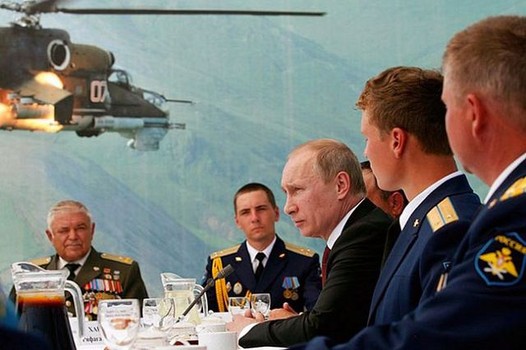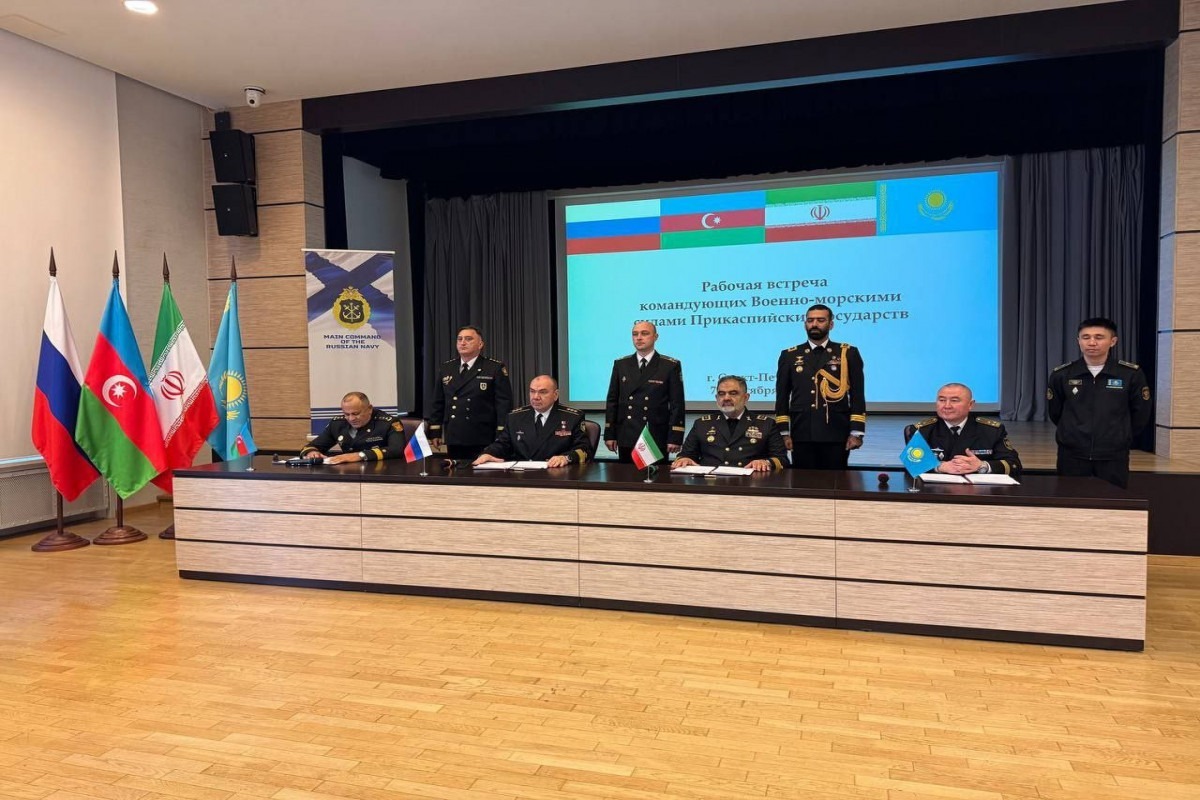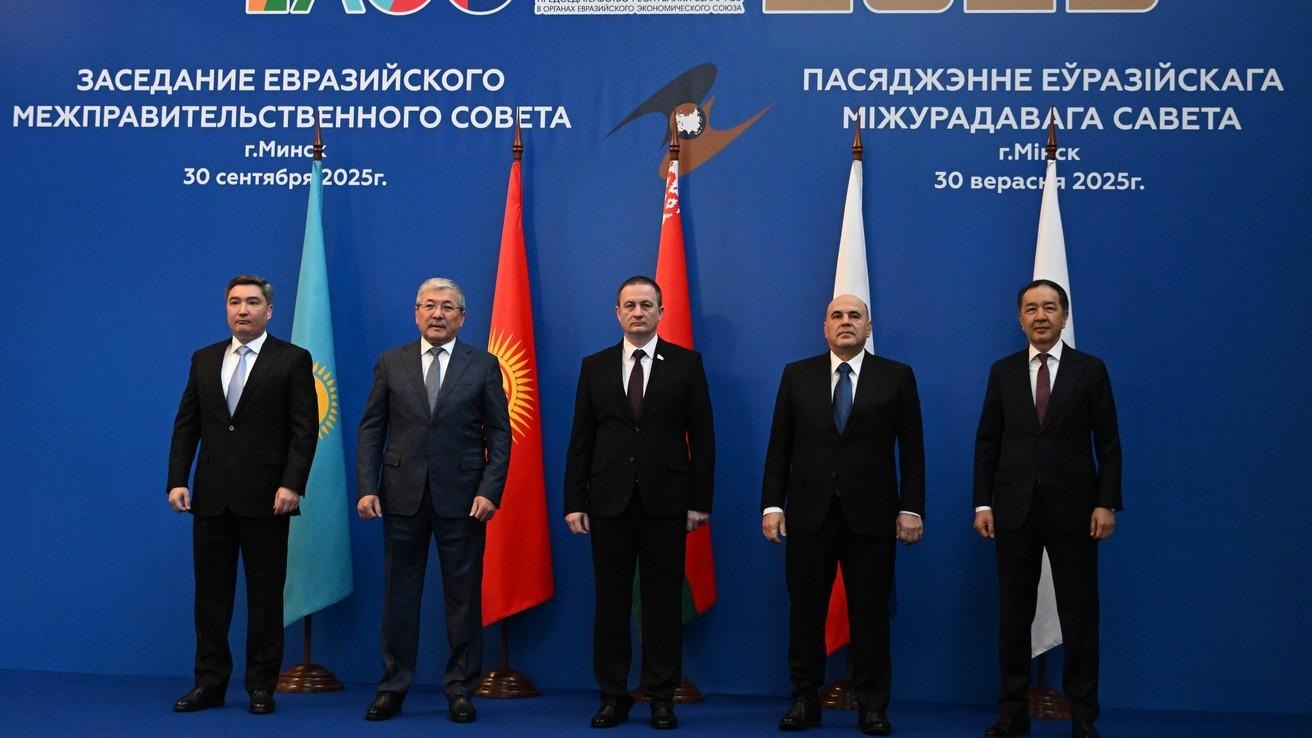
Putin Sees Russia Surrounded by Foes, Struggling to Rebuild Its Military
Putin Sees Russia Surrounded by Foes, Struggling to Rebuild Its Military
Russia is always extremely secretive about everything and defense in particular, especially so under former KGB agent President Vladimir Putin. The Russian constitution, adopted in 1993, did include a clause that the nation must have a military doctrine that must be a public document. To avoid such unwelcome transparency, a loophole has been created by essentially replacing the public military doctrine with a totally secret “plan to defend Russia,” which, apparently, is a military doctrine in everything, but name. The Kremlin reported last month that Defense Minister Sergei Shoigu and his first deputy, Chief of the General Staff, General Valery Gerasimov presented Putin with a draft Defense Plan (see EDM, January 31).
It turns out Putin signed the Defense Plan into law, but only this week. While addressing a meeting of top brass defense ministry and other government officials at the defense ministry “extended collegium,” the president disclosed: “You know that at the end of January, the ‘Plan to Defend the Russian Federation Until 2016’ was endorsed, involving a military and political threat assessment, deterrence and conflict prevention as well as basic mobilization questions” (www.kremlin.ru, February 27). Of course, the text is totally secret.
Most of the “extended collegium” proceedings were equally closed to the public, but Putin and Shoigu did make keynote speeches that were open to the press. Putin for the first time publicly acknowledged that some mistakes had been made in carrying out radical military reforms by Anatoly Serdyukov, appointed defense minister in 2007, and that corrections are needed, but insisted they were minor and “endless revisions of previously made decisions are unacceptable.” Putin did not say a word in public about the investigation of alleged mass misappropriation in the defense ministry under Serdyukov’s watch, but talked about massive threats and enemies surrounding Russia from all sides: the North Atlantic Treaty Organization (NATO) still seeking to enlarge, the United States threatening global stability with ballistic missile defense (BMD), as well as conflicts spreading chaos in the Middle East and creeping closer to Russian borders. Even the Arctic “is threatened by militarization.” According to Putin, this is a short list of existing threats: “There are actually many more I did not name” (www.kremlin.ru, February 27).
Putin ordered “swift and decisive” action to support the reintegration of the post-Soviet space into a new Eurasian Union and uphold “multipolarity” in the world. “Full-strength, permanent, battle-ready military groupings must be deployed on all strategic lines of advance” against the multitude of enemies surrounding Russia. In two years, enough contract soldiers must be recruited so that all units are fully manned with privates and sergeants [today, because of recruitment problems, most army units are seriously undermanned].” Putin confirmed that conscript service will continue to be for one year, which makes the task of accomplishing “100 percent manning” and permanent, top battle readiness an uphill task. Putin insisted that Shoigu has three to five years to achieve a decisive breakthrough and bring the Russian military to a “new level of capability” (www.kremlin.ru, February 27).
Shoigu criticized Serdyukov for making costly mistakes that saddled the defense ministry with some $10 billion worth of unfinished housing projects, while the “outsourcing” of logistical services was in some cases pronounced successful. A new command-and-control center is being created to coordinate the defense ministry forces and the “efforts of the 49 other ministries and departments that are part of the new Defense Plan.” Russia will be working to recreate a permanent naval presence in the Mediterranean that it had during the Cold War and abandoned in 1992, announced Shoigu. The Airborne Troops (VDV) will become the basis for a mobile force to be used in conflict zones (RIA Novosti, February 27). The commander of the VDV, Colonel-General Vladimir Shamanov, later told journalists with jubilation that orders were issued for the VDV to this year form 22 permanent readiness battalions manned by contract soldiers to make up the base for a rapid deployment force (Izvesia, February 27).
Serdyukov lost his job and may be indicted on corruption charges because he overestimated his influence in the Russian bureaucratic system and made many enemies within the uniform military, the military industry with which he quarreled over procurement prices and, apparently, within Putin’s inner circle—the defense ministry insisted on selling off surplus real estate on its own without sharing the spoils. Now Shoigu has moved swiftly and decisively, as Putin ordered, to mitigate the outstanding problems. The defense ministry will not be involved anymore in selling off its surplus lands or buildings and will not be directly involved in negotiating the price of the weapons it procures (RIA Novosti, February 27).
The massive overhaul of the military education system begun by Serdyukov is being fully reversed. A year ago in an election manifesto, Putin promoted Serdyukov’s radical reform as his personal achievement and wrote about plans to create “ten research and education canters” to replace an unruly multitude of diverse military academies and schools created during the Cold War to mass produce thousands of lieutenants that the present Russian military did not seem to need. In 2009, the number of new cadets joining the military education system was reduced to some 2,000; in 2010, it was reduced further to several hundred a year as the education system was overhauled (Nezavisimaya Gazeta, May 27, 2010). Now Shoigu has ordered that old-time military schools be restored under their old names and that in 2013, some 15,000 new cadets be recruited to join the military education system—a more than five-fold increase (https://function.mil.ru/news_page/country/more.htm?id=11650595@egNews).
It seems Putin’s words about the unacceptability of “endless revisions of previously made decisions” were mostly political window-dressing to avoid responsibility for an unpopular military reform that he supervised and supported. The apparent resurrection of a Cold War military education system to mass train tens of thousands of officers—who are probably not needed in such quantities—only to lead a mass multi-million mobilization force is indeed a U-turn in strategic planning. Today, as the Kremlin believes itself surrounded with enemies from all sides, the restoration of everything Soviet seems to be the policy of the day.


